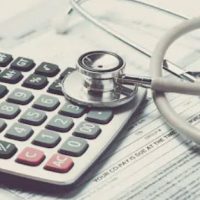Why Bankruptcy May be the Solution for Your Medical Debt

If you are one of the millions of Americans who is struggling to pay bills due to unexpected medical debt, you are not alone. Unfortunately, no one can predict or prevent a major health issue. When an emergency happens you simply have to figure out a way to get treatment – even if it’s treatment you know you can’t afford. And even if your medical issue is quickly resolved, it can leave significant expenses behind that lead to things spiraling out of control before you know it. If you have found yourself in a situation where you are overwhelmed by unexpected medical debt, there is a potential solution for your problems – bankruptcy.
Background on Medical Debt
Medical expenses are the leading cause of bankruptcy in this country despite the common misconception that those experiencing financial challenges have been mismanaging funds in other areas of their life. And unfortunately, statistics published in a USA Today article reflect that medical debt has only been increasing for Americans during the COVID-19 pandemic. The results of a separate study referenced in the same article indicate that approximately 25 percent of medical debt is attributable to hospitalizations which represents the largest category of expenses. Other sources of this debt include:
- Diagnostic tests for X-rays, MRIs and lab fees (22 percent)
- Emergency room visits (19 percent) and
- Doctor visits (15 percent)
How Bankruptcy May Help You Eliminate Your Medical Debt
Bankruptcy is a legal procedure that can help a debtor find financial relief from certain debts. While there isn’t a type of bankruptcy that is structured specifically for medical debt, this is considered to be in the category of unsecured debts which are not tied to collateral or assets. If you hear a person talk about filing for medical bankruptcy, what that person really means is that they filed Chapter 7 or Chapter 13 bankruptcy. If you are able to qualify for Chapter 7 bankruptcy, your medical debt could get discharged which means it would be wiped out and you would no longer have a legal responsibility for the debt. Even if Chapter 7 is not an option, you may be able to get medical debt relief by filing Chapter 13. Chapter 13 bankruptcy restructures your debts into more manageable payments that are based on your income and expenses and that are slated to last over a certain period of time. At the end of the specified time period, any remaining debts are discharged. The good news is that you may be able to get relief from medical debt under either of these bankruptcy pathways.
Are You Struggling Under Crippling Medical Debts?
If you are weighed down by mounting medical bills, you don’t have to suffer alone. As the Plantation bankruptcy attorneys at Nowack & Olson, PLLC, we can help you weigh your options and make the right choice for your personal circumstances whether you are battling unexpected medical debt or there are other factors in your life causing you financial constraints. If you have any questions about bankruptcy, help can be obtained by reaching out to us today for a free consultation.
Resource:
usatoday.com/story/money/2020/09/18/unemployment-americans-face-45-b-worth-medical-debt-collections/3480192001/
